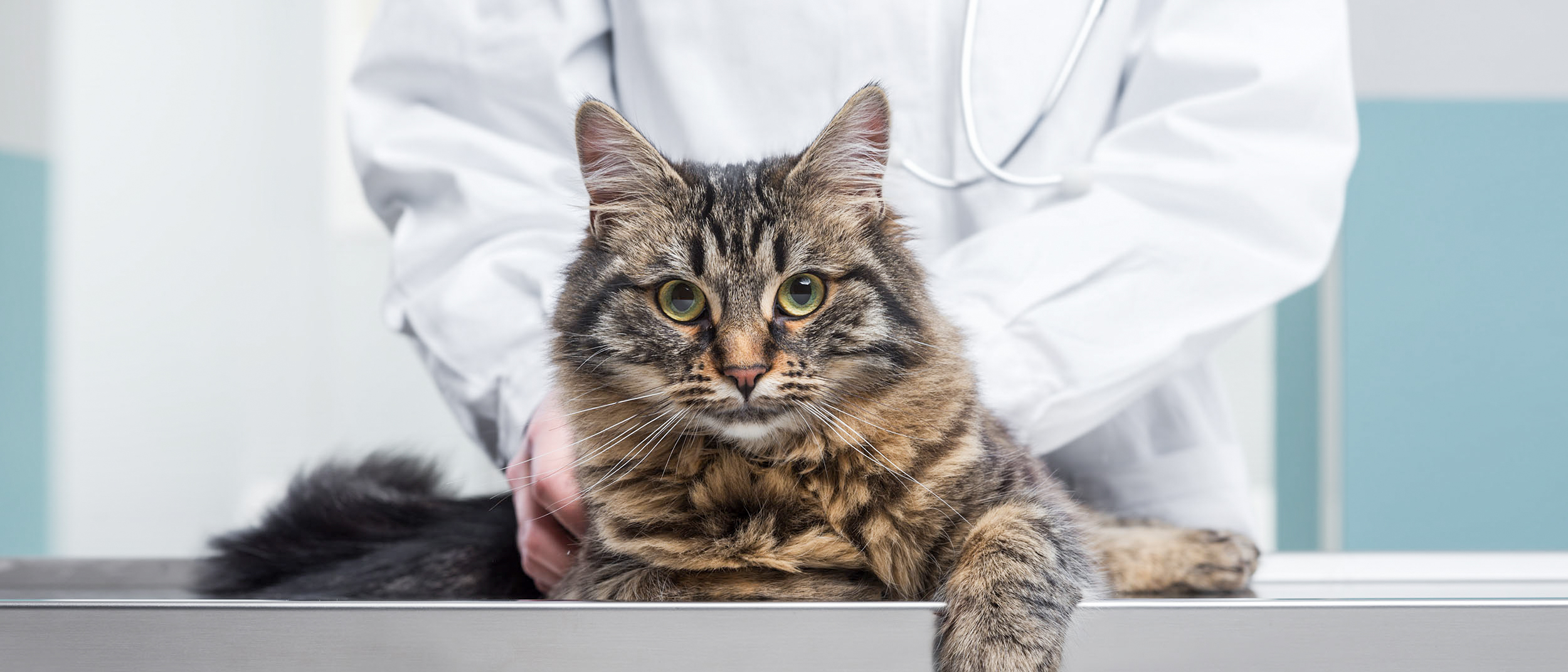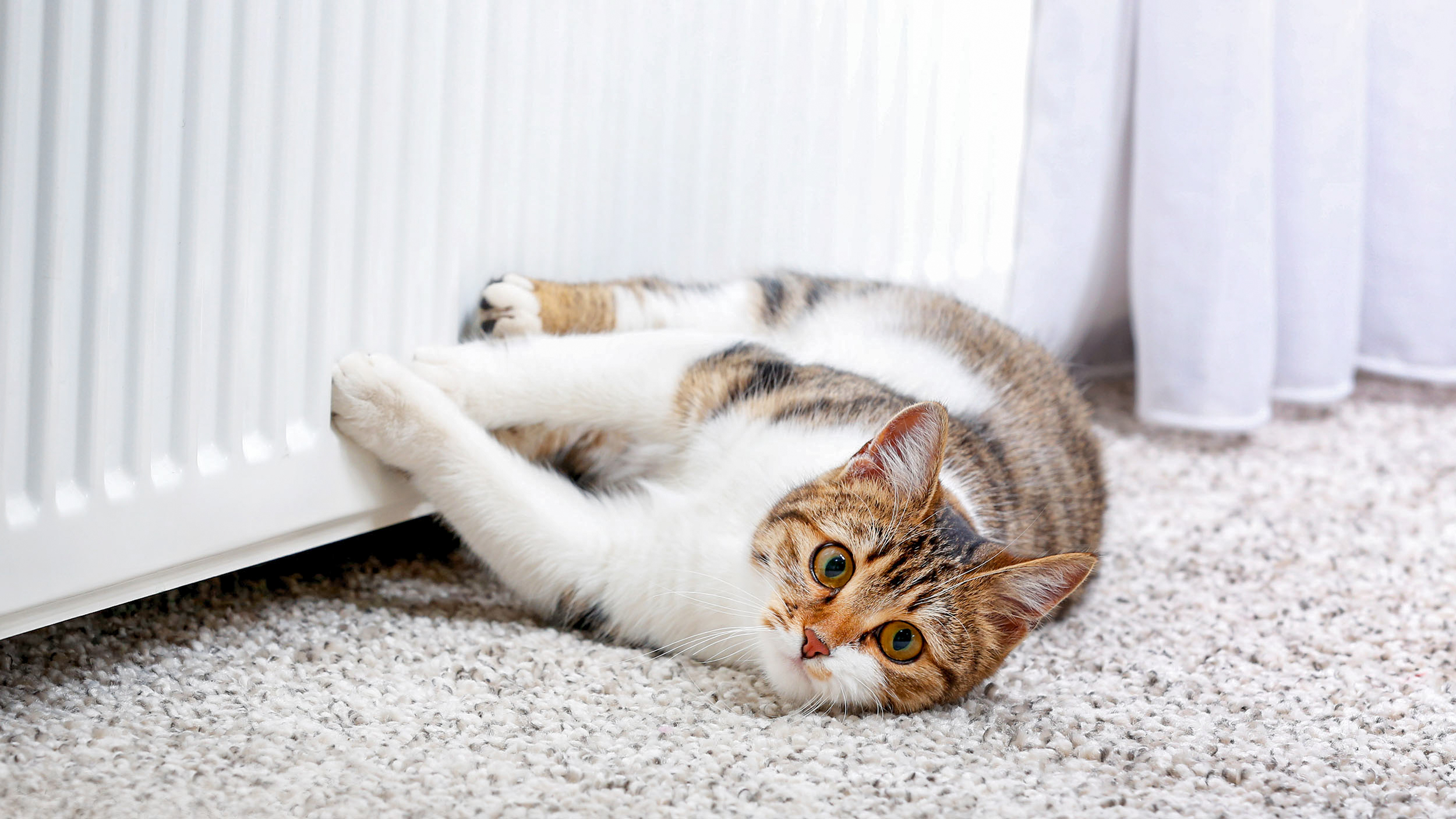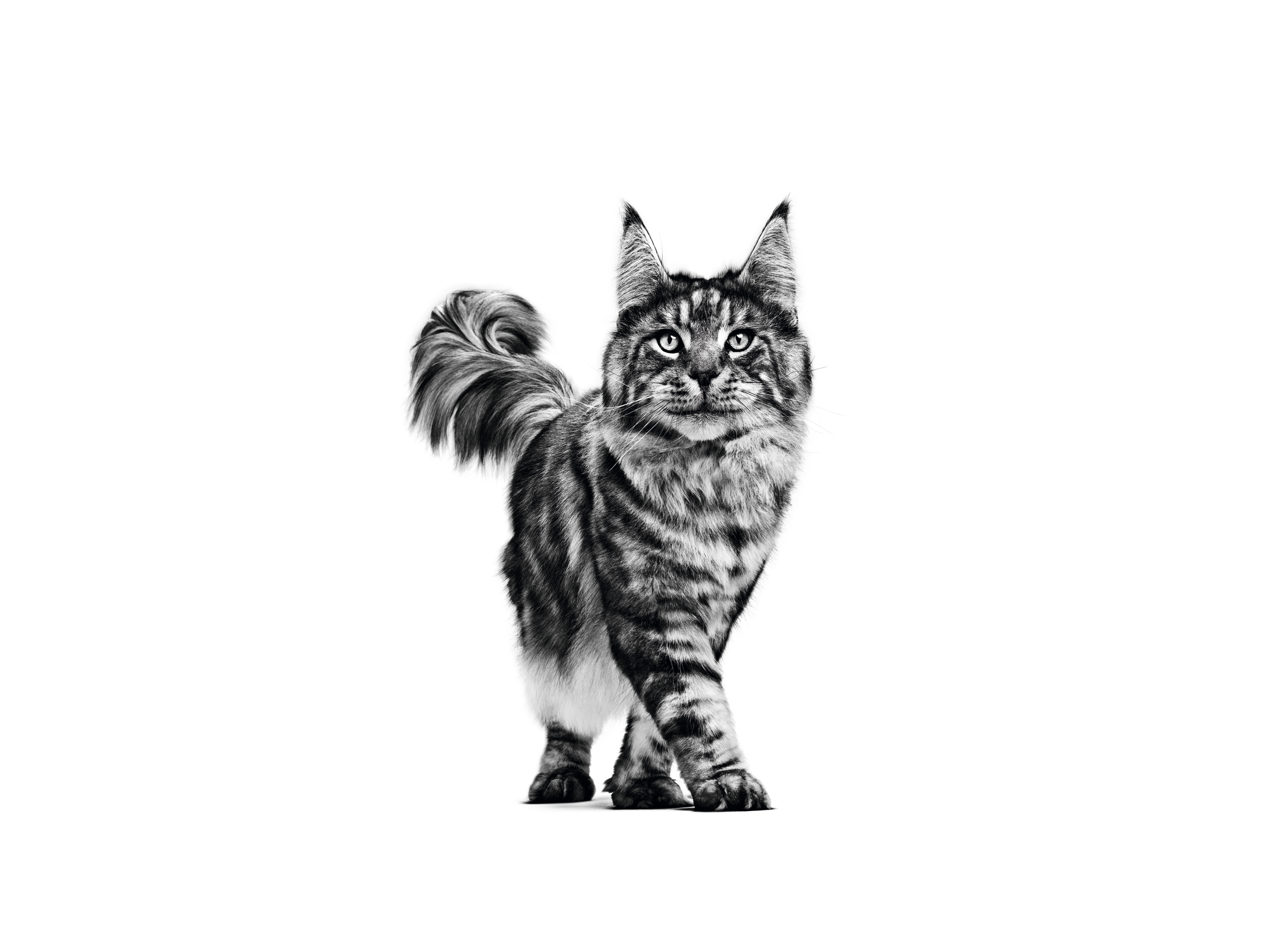How much should a cat weigh?

Although your cat’s weight will change over the course of its life, it’s important you’re able to recognise when their weight – either too much or too little – is becoming a health problem. This can be hard if the weight increase or decrease has happened slowly, but there are several things you can look out for.
Know which cats are predisposed to weight gain
The cats which are most at risk of weight gain are:
- Short-haired European type cats, rather than pure breeds
- Five to 10 years old with reduced activity levels
- Male cats
- Those which have been sterilised, as this can trigger rapid weight gain
- Those which are fed freely and more than is recommended
- Indoor cats with limited access to exercise and play
Know how to check your cat’s weight
There are many variables which affect a cat’s weight, including its unique size, its breed, sex and age . This means weighing your cat and comparing it to an ‘ideal weight’ isn’t always accurate. Instead, you can check your cat at home with a few simple steps.
When looking at your cat in profile from above, you should be able to see its bones clearly, including the hollow of its flank and a clear distinction between its thorax and abdomen (chest and stomach). If its outline is very pronounced, your cat may be underweight; if the outline is expanded with little definition, your cat may be overweight.
By feeling your cat you can get a good idea of whether its weight is healthy or not. Gently see if you can feel and count its ribs, feel its back vertebrae and muscles, and a pocket of stomach fat. You can then use this to see if your cat’s weight should be of concern:
- If you can feel its ribs but they’re not visible, your cat is an ideal weight
- If you can feel the ribs but not count them, your cat is overweight
- If you can’t feel the ribs at all, your cat is obese
It’s important to take your cat to your vet if you have any concerns about its health; your vet may perform the same examination plus other tests to determine your cat's weight.

Know the warning signs for your cat’s weight
If you notice that your cat is losing or gaining weight very suddenly, this can indicate a greater underlying problem. If their weight loss or gain is accompanied by digestive problems, vomiting, diarrhoea, changes in their skin or coat quality, and changes in their mood, it’s crucial to consult a vet who will be able to make a full diagnosis.
When your cat is its ideal weight, it will have a much better chance to lead a healthy, contented life involving a good diet, play, exercise and companionship. Recognising when its weight may be a problem means you’re able to pick up on any issues quickly and resolve them, getting your cat back on the path to a long and healthy life.
What risks are there if my cat is overweight or obese?
In general, obesity can reduce your cat’s quality and life expectancy; it’s harder for it to play and move around, and surgical procedures or check-ups become more difficult.
Obese cats are much more at risk of diabetes – 80% to 90% of obese cats have this condition, which requires daily insulin injections. Often, the diabetes can be reversed once any extra weight is lost, as the accumulated fat which is directly responsible for a failure to regulate glucose is no longer present.
Your cat’s immune system can become compromised when they’re obese, making them more prone to infection. This includes urinary infection and ‘stones’ which occur as overweight cats are less active, tend to drink less water and urinate less often than healthy cats.
One serious and potentially fatal risk with obese cats is liver failure. When the cat’s body believes it is undernourished – for example, if a constant food supply stops – fat is moved from stores into the liver to be used as energy. However, a cat’s body is unable to manage that process effectively which leads to the liver functioning poorly, sometimes eventually leading to fatal hepatic insufficiency and liver failure.
With extra weight, cats find it difficult to groom themselves which can lead to skin problems. Similarly, extra weight puts pressure on your cat’s joints, and they can suffer from arthritis. Cardiovascular and respiratory systems are also affected, leading to breathlessness and heart problems.
An overweight or obese cat can also end up struggling with their mental health; rather than running away or hiding when they sense danger, overweight cats aren’t able to react quickly and so can’t follow their instincts, which can cause them distress.
With the right diet, exercise and behaviours, you’ll be able to protect your cat from the risks of being overweight or obese. To start, speak to your vet who will be able to advise you on the best course of action.
Helping your cat exercise
Making sure you have regular playtime with your cat, particularly if they live indoors, is essential to helping them maintain a healthy weight. Indoor cats need, on average, a third fewer calories than outdoor cats due to their lower energy expenditure, so playing with them is a good way to increase their movement and reduce the likelihood of gaining weight.
Two minutes of playtime twice a day, gradually increasing as they get more active, is an excellent start. Give them toys they can play with by themselves, or food toys which encourage them to play with an object to get a few kibbles as a reward.
Boredom is one of the principle reasons that cats eat when they’re not hungry, so by giving your pet things to play with you’re helping them focus on something healthier and more enjoyable in the longer-term.
Feeding your cat in the right way
Setting up good feeding behaviours will help your cat retain a healthy weight and avoid begging or mewling for extra food.
Make sure to give your cat the recommended portion of food by measuring it using kitchen scales. Even if you feel it seems too little , manufactured foods are complete and balanced, and the ration is carefully calculated to give your cat everything they need. Your cat needs plenty of access to fresh water, too, to help with digestion and prevent urinary problems such as ‘stones’ developing.
Put a limit on the number of treats you give your cat, as these can significantly increase their daily calorie input – if you do give them, make sure to factor them into their overall allowance.
The right food for the right time
Cats of different ages and lifestyles need different nutritional support to maintain a healthy weight, which means keeping an eye on their growth and adjusting their diet to suit their needs.
Kittens, from four weeks to four months, need plenty of energy to facilitate their rapid growth – but as their digestive systems are weaker, it needs to be energy-dense and highly-digestible so it doesn’t cause them discomfort. Regularly check their weight and adjust the portion to ensure they are consistently gaining weight in line with your vet’s advice.
Neutering or spaying has a significant impact on your cat’s weight; their energy requirements drop by 30% but their appetite can increase by up to 26% in the days following the operation. Therefore, neutered and spayed cats are at a higher risk of putting on weight, particularly shortly after their operation. Dedicated foods can help to prevent such instances, with a decreased level of energy, an altered amount of nutrients and an overall formula able to support their health.
During pregnancy, the energy needs of your female cat will increase dramatically – by the end of gestation, she’ll be consuming 70% more than normal! Food designed for pregnant or lactating cats is ideal, as it’s rich in fat and will support milk production for her kittens. To make sure your pregnant cat is given the right nutrients, it's best to consult a vet for recommendations on product and feeding schedules.
To make sure you’re giving your cat the full support it needs to maintain a healthy weight, speak to your vet who will be happy to advise you on the best actions you can take.
Related Articles

Find a vet
If you have any concerns about your cat’s health, consult a vet for professional advice.
Like & share this page